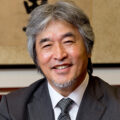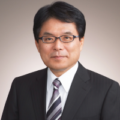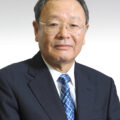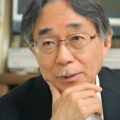“Palliative Medicine” rather than “Life-Prolonging Medicine” for Elderly People in the Terminal Stage of Life
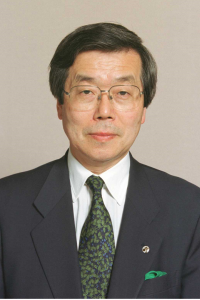
KOJIMA Akira, Chairman of World Trade Center Tokyo, Inc., Member, Board of Trustees of the National Graduate Institute for Policy Studies
Mark Twain said with humor, “The only two certainties in life are death and taxes.” However, few people attempt to look straight at this undoubted reality, especially the latter. With the technological development of life-prolonging medicine, only “life prolongation” comes to the fore, and it is said that old people are abused in terms of terminal medicine in the name of medicine.
I had the opportunity to listen to reports about terminal medicine from two experts on medicine for the elderly at a trustees’ meeting of the Japan Productivity Center that was held in late September 2015. The trustees who attended the meeting showed keen interest in their vivid explanations about reality.
The lecturers were Hokkaido Chuo Rosai Hospital Director Miyamoto Kenji and Sakuradai Koujinkai Hospital Comprehensive Dementia Support Center Director Miyamoto Reiko. They are husband and wife, and established the Association for Studying Terminal Medicine for the Elderly in Sapporo in 2012. The two experts are members of the Study Group for Terminal Medicine for the Elderly of the Japan Policy Council chaired by Masuda Hiroya, a policy formulation group supported by the Japan Productivity Center. The two doctors co-authored No Bedridden Old People in Western Countries: Medicine of Your Own Choosing for the Final Days of Your Life from publisher Chuokoron-Shinsha, Inc.
Japan is now facing the serious issue of an aging population and declining birthrates, and there is much public discussion about it. However, there is little public recognition and discussion about the arrival of “the era of multiple deaths.” The number of people who died in 2010 was 1,192,000, and 1,020,000 of those were 65 years of age or over. The population of deaths is anticipated to rise by more than 400,000 in 2030, to 1.6 million. This estimate indicates that the number of hospitalized deaths will hit 80%, which will lead to a shortage of 320,000 beds. In addition, most of the current 340,000 beds for medical treatment are used by patients under life-prolonging treatment by intravenous drip and tube feeding.
The most significant focal point of the discussion is the ethical view of how you think about death in your life. In Sweden, doctors carry out only palliative medicine in terminal medical treatments for the elderly. That is, they administer only painkilling drugs, antipyretics and tranquilizers. They do not administer antibiotic agents and vasopressors. Instead, they measure blood pressure and urine, administer intravenous drips and tube feeding and do not introduce artificial respirators and blood dialysis.
Much emphasis is placed on palliative medicine at the initiative of the government in Australia. The guidelines on palliative medicine recommend that patients should not be given forced feeding, arguing that active intervention for improving nutrition is ethically problematic.
Terminal artificial feeding (intravenous drip and tube feeding) is not carried out in Sweden, Australia and the Netherlands. Terminal artificial feeding is rare in Austria and Spain; it varies from state to state in America; and it occurs very frequently in Japan. In terms of the major reasons for not carrying out artificial feeding, European countries, the United States and Australia claim that life-prolonging treatment undermines human dignity in terms of ethics, and that it restrains medical expenses.
The abovementioned two doctors say, “In Japan, medical personnel provide substantial treatments to elderly patients who are going to die very soon, right to the end. During the treatment period, patients experience complications one after another and die suffering. What is common in Japan is quite uncommon in other countries.”
In fact, I became a member of the Japan Society for Dying with Dignity (JSDD) two years ago and created a living will declaring that I would refuse to receive life-prolonging medicine. However, unlike Western countries, Japan has no legal grounds for living wills. That is why doctors are afraid of having lawsuits filed against them and do not suspend treatments. In addition, we also have a problematic practice of hospitals for acute-stage patients providing substantial medical services to increase remuneration for medical treatment in terms of hospital management. Japanese society also sees the frequent eruption of the emotional argument that it is not right to let elderly people die without substantial help to cut and save medical expenses. Japan has the world’s highest longevity, but it does not have well-established medicine for the elderly. In addition, the speeches by the two doctors gave me the strong impression that Japanese people have a poor sense of life and death.
Translated from an original article in Japanese written for Discuss Japan. [November 2015]
